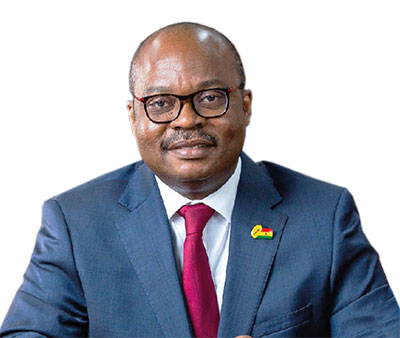Prices of goods and services have been going up by an average of 2.25% since the beginning of the year, the Bank of Ghana has revealed.
According to the Central Bank, prices climbed by 2.4% in February 2022, from 2.1% in January 2022 and 1.2% in December 2021.
This is evident in the significant jump in inflation to 19.4% in March 2022.
In its Inflation Outlook Report, BoG said the March 2022 forecast showed a significant outward shift in the inflation outlook compared to the January forecast round.
“Although the outturn from the inflation forecast was broadly consistent with expectations, changes from the January 2022 forecast were largely driven by the realization of significant pressures on the domestic currency amid fiscal uncertainties and tighter external financing conditions in the first quarter of 2022, together with upward adjustments in ex-pump petroleum prices, rising transportation costs and the steady recovery in domestic growth conditions over the forecast horizon.”
“The updated forecast assumptions, together with the impending second-round effects of the surge in ex-pump prices and transportation costs, tight credit conditions, rising inflation expectations, lingering food price pressures, rise in production costs, and the impact of the ongoing geopolitical tensions are expected to drive inflation above the medium-term target band of 8±2 percent in the near term”, the Central Bank pointed out.
“However, inflation is expected to return to the target band over the forecast horizon as monetary conditions tighten, domestic currency stabilises, and supply chain disruptions ease in the medium-term, barring any unanticipated shocks”, it added.
Inflation Risk Assessment
The Central Bank said risks to the outlook for inflation were broadly tilted to the upside, driven by price pressures from both foreign and domestic sources.
Easter: One dead, 13 injured in two separate road accidents at Kwahu
Average
On the foreign risks, it noted global inflation and inflation expectations are projected to remain elevated in the near term, fuelled by accelerated increases in energy and crude oil prices – exacerbated by the Russia-Ukraine war – together with lingering supply-chain bottlenecks, rising food prices and increased aggregated demand pressures as the global economy recovers.
These risks are expected to transmit to high domestic inflation in the coming months, especially if the current pressures persist.
On the domestic front, the upward adjustments in the petroleum products and attendant second-round effects have pushed up inflation and inflation expectations.
Inflation surged to 19.4% in February 2022
Year-on-year inflation surged significantly due to rising price of some foodstuffs and transport fares, the highest in 13 years.
According to the Ghana Statistical Service, food inflation recorded a rate of 22.4% in March 2022, compared to 17.4% in February 2022. Non-food inflation however recorded a rate of 17.0% in March 2021, from 14.5% recorded in February 2022.
Foodstuffs such as Oil and Fats (28.2%), Water (27.1%), Cereal Products (25.0%), Vegetables (23.8%), Fish and Other Seafood (23.7%), Fruits and Nuts (22.1%), Soft Drinks (20.5%) and Live Animals and Meat (20.2%) recorded inflation rate, higher than the national average.
Transport including fuel recorded the highest inflation rate of 27.6%, followed by Housing with an inflation rate of 21.4%.
Month-on-month inflation between February 2022 and March 2022 was 4.0%. However, on a month-on-month basis, food inflation exceeded non-food inflation by 0.8 percentage points.
Business Analyst

























